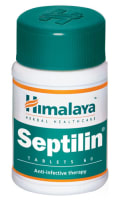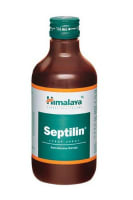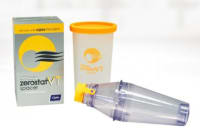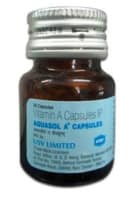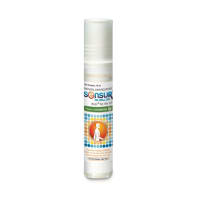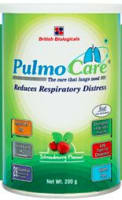
Interaction with alcohol is unknown. Please consult your doctor.

WEIGH RISKS VS BENEFITS
Actol 800mg Tablet may be unsafe to use during pregnancy.Animal studies have shown adverse effects on the foetus, however, there are limited human studies. The benefits from use in pregnant women may be acceptable despite the risk. Please consult your doctor.

SAFE
Actol 800mg Tablet is safe to use during lactation. Human studies have shown that either the drug does not pass into the breastmilk in significant amount or is not expected to cause toxicity to the baby.

Do not drive unless you are feeling well.Actol 800mg Tablet occasionally causes sight problems and tingling or numbness in hand or feet. After taking this medicine you should not drive until you know how it affects you.

CAUTION
Actol 800mg Tablet should be used with caution in patients with kidney disease. Dose adjustment of Actol 800mg Tablet may be needed. Please consult your doctor.Kidney function tests are advisable before the start of this medicine.

CAUTION
Actol 800mg Tablet should be used with caution in patients with liver disease. Dose adjustment of Actol 800mg Tablet may be needed. Please consult your doctor.
Uses of Actol Tablet
Actol 800mg Tablet is used in the treatment of tuberculosis.
How to use Actol Tablet
Take this medicine in the dose and duration as advised by your doctor. Swallow it as a whole. Do not chew, crush or break it. Actol 800mg Tablet is to be taken with food.
How Actol Tablet works
Actol 800mg Tablet is an antibiotic. It works by slowing the growth of bacteria that causes tuberculosis.
Common Visual impairment, Color blindness.
Expert advice for Actol Tablet
Do consult your doctor before taking ethambutol if you have any eye problems such as cataracts (disturbed vision due to clouding of eye lenses) , recurrent inflammatory conditions of the eye, optic neuritis (inflammation of nerve fibers that transmit visual information from your eye to the brain), and diabetic retinopathy (a complication of eye due to diabetes). Ethambutol can cause serious eye damage. Regular eye checkups are recommended while on treatment with ethambutol.
Do consult your doctor before taking ethambutol:
If you have kidney problems.
If you have liver problems.
If you have gout (pain, swelling, redness and stiffness in joints due to accumulation of uric acid).
Ethambutol is not recommended for use in children aged below 3 years.
Do consult your doctor before taking ethambutol if you are pregnant or planning to become pregnant.
Do consult your doctor before taking ethambutol if you are breastfeeding.
Do not stop taking ethambutol without consulting your doctor. If you forget to take a dose of ethambutol, take it as soon as you remember. Do not double the dose to make up for the missed dose.
Q. Does Actol cause blindness?
Optic neuritis (inflammation of nerve fibers that transmit visual information from your eye to the brain) is one of the side effects of Actol which causes several forms of eye defect. Although these conditions are reversible upon discontinuation of the drug, rare cases of irreversible blindness have also been reported. Please contact your doctor immediately if you notice any of these symptoms: decreased clearness of vision, loss of vision, disturbed vision due to blind spots, color blindness, visual field defect and eye pain
Q. Does Actol induce hyperuricemia/how does Actol induce hyperuricemia?
Yes. Increase in blood levels of uric acid is a side effect of Actol. It increases the retention of uric acid in the body by decreasing the excretion of urates (uric acid) by the kidneys
Q. How does Actol work in the body?
Actol is an antibiotic effective against tuberculosis causing bacteria. It suppresses the growth of the bacteria by interfering with the formation of the outer protective covering (cell wall) of the bacteria, thereby weakening the bacteria
Q. What is Actol toxicity/How does Actol cause optic neuritis/how does Actol affect vision?
Actol toxicity involves toxic effects on the eyes (optic neuritis/optic neuropathy) which are related to the dose and duration of Actol treatment. It causes optic neuritis (inflammation of nerve fibers in the eye) by interfering with important cellular activities (mitochondrial toxicity) in the nerve cells and inducing nerve damage (neuropathy) thereby affecting the transmission of visual information from the eye to brain. The symptoms of Actol induced optic neuritis include: decreased clearness of vision, loss of vision, disturbed vision due to blind spots, color blindness, visual field defect and eye pain
Q. What does Actol treat?
Actol is an antibiotic effective against tuberculosis causing bacteria. It is used in the prevention, treatment and second time treatment of tuberculosis (a serious infection caused by bacteria that affects the lungs and in certain cases other parts of the body)
Q. Is Actol bacteriostatic or bactericidal?
Actol is both a bacteriostatic and a bactericidal antibiotic. It suppresses the growth of bacteria (bacteriostatic) by interfering with the formation of the outer protective covering (cell wall) of the bacteria, thereby weakening it and causing cell death in certain cases (bactericidal)
Q. Is Actol hepatotoxic?
Liver toxicities are among the known side effects of Actol. Inflammation of liver (hepatitis), abnormal liver function causing yellowing of skin and eyes (jaundice), abnormal liver function tests (blood tests to assess health of liver) and very rarely liver failure have been noted in patients receiving multi drug (including Actol) treatment for tuberculosis. Please contact your doctor before taking Actol if you have any liver problems
Q. Is Actol toxicity reversible?
In most cases Actol toxicities are related to dose (depends upon the quantity of Actol you take) and duration of treatment and are reversible upon discontinuation. However, serious irreversible damage to eye and liver has been reported in rare cases
Q. Is Actol chemotherapy?
Actol is an antibiotic used in the treatment of tuberculosis. Do not confuse it with chemotherapy or chemo drugs used for the treatment of cancer
Q. Actol is effective against?
Actol is effective against most tuberculosis causing bacteria belonging to Mycobacterium family (M. tuberculosis, M. avium complex, M. kansasii, M. marinum).


 Actol 800mg Tablet
Actol 800mg Tablet  Bookmark
Bookmark
